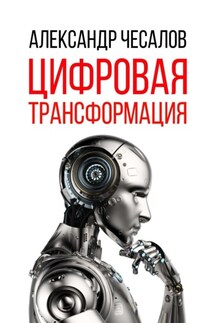Глоссариум по искусственному интеллекту: 2500 терминов. Том 2 - страница 42
Entropy — the average amount of information conveyed by a stochastic source of data467.
Environment in reinforcement learning, the world that contains the agent and allows the agent to observe that world’s state. For example, the represented world can be a game like chess, or a physical world like a maze. When the agent applies an action to the environment, then the environment transitions between states468.
Episode in reinforcement learning, is each of the repeated attempts by the agent to learn an environment469.
Epoch in the context of training Deep Learning models, is one pass of the full training data set470,471.
Epsilon greedy policy in reinforcement learning, is a policy that either follows a random policy with epsilon probability or a greedy policy otherwise. For example, if epsilon is 0.9, then the policy follows a random policy 90% of the time and a greedy policy 10% of the time472.
Equality of opportunity is a fairness metric that checks whether, for a preferred label (one that confers an advantage or benefit to a person) and a given attribute, a classifier predicts that preferred label equally well for all values of that attribute. In other words, equality of opportunity measures whether the people who should qualify for an opportunity are equally likely to do so regardless of their group membership. For example, suppose Glubbdubdrib University admits both Lilliputians and Brobdingnagians to a rigorous mathematics program. Lilliputians’ secondary schools offer a robust curriculum of math classes, and the vast majority of students are qualified for the university program. Brobdingnagians’ secondary schools don’t offer math classes at all, and as a result, far fewer of their students are qualified. Equality of opportunity is satisfied for the preferred label of «admitted» with respect to nationality (Lilliputian or Brobdingnagian) if qualified students are equally likely to be admitted irrespective of whether they’re a Lilliputian or a Brobdingnagian473.
Equalized odds is a fairness metric that checks if, for any particular label and attribute, a classifier predicts that label equally well for all values of that attribute474.
Ergatic system is a scheme of production, one of the elements of which is a person or a group of people and a technical device through which a person carries out his activities. The main features of such systems are socio-psychological aspects. Along with the disadvantages (the presence of the «human factor»), ergatic systems have a number of advantages, such as fuzzy logic, evolution, decision-making in non-standard situations475.
Error backpropagation – the process of adjusting the weights in a neural network by minimizing the error at the output. It involves a large number of iteration cycles with the training data476.
Error-driven learning is a sub-area of machine learning concerned with how an agent ought to take actions in an environment so as to minimize some error feedback. It is a type of reinforcement learning477.
Ethical use of artificial intelligence is a systematic normative understanding of the ethical aspects of AI based on an evolving complex, comprehensive and multicultural system of interrelated values, principles and procedures that can guide societies in matters of responsible consideration of the known and unknown consequences of the use of AI technologies for people, communities, the natural environment environment and ecosystems, as well as serve as a basis for decision-making regarding the use or non-use of AI-based technologies









